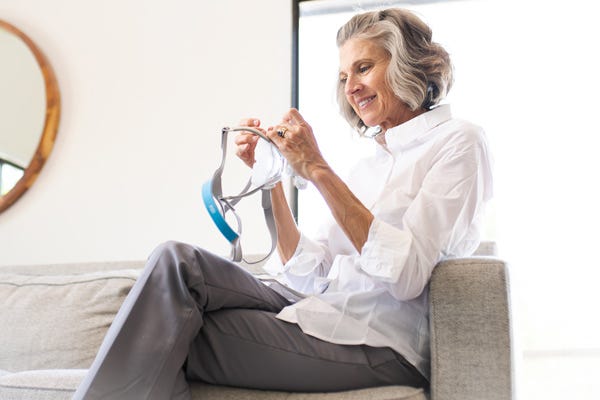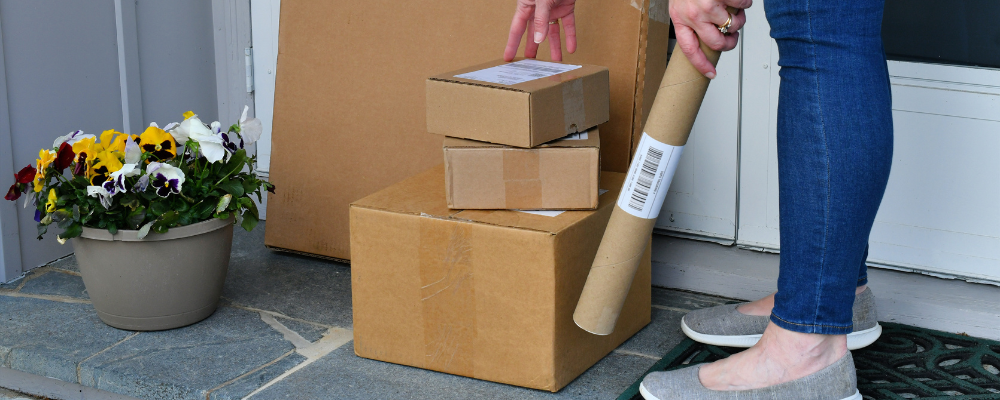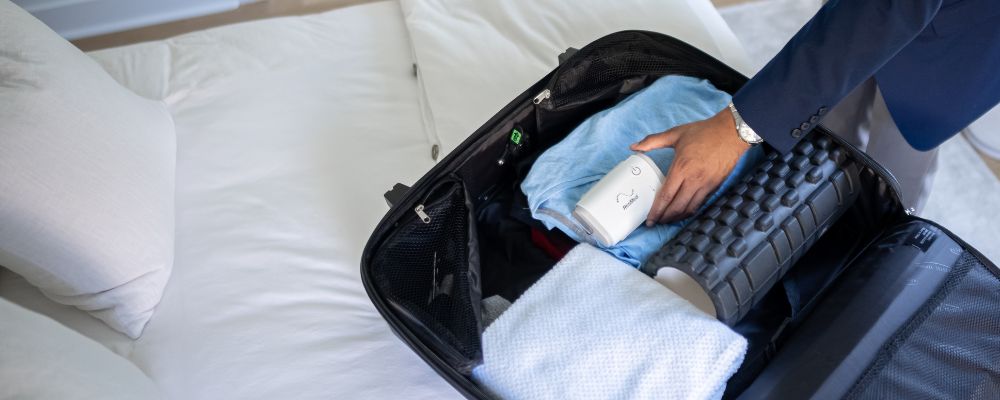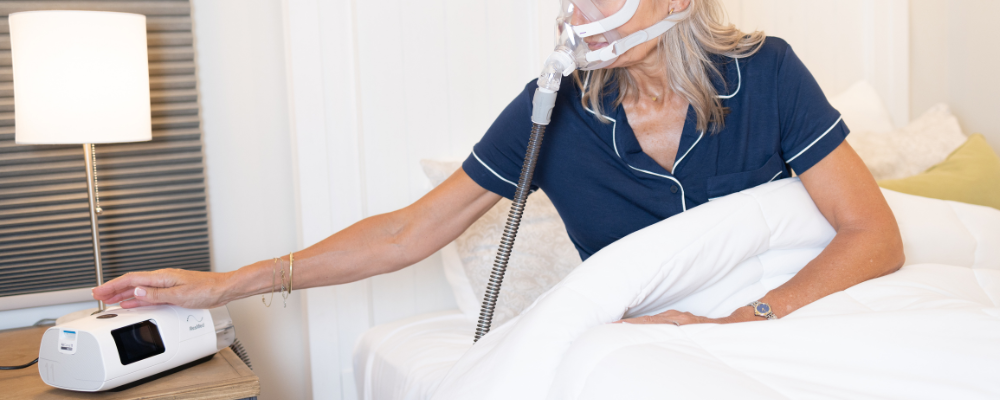It may surprise CPAP users to find that some health insurance companies require you to rent your PAP machine. In fact, they may require you to rent for as long as a year before you own it outright! If you’ve only just discovered that you’re facing a rental policy, you probably have a lot of questions. To help you out, Aeroflow Sleep is here to take a look at why your insurer requires a rental period, and what that means for your wallet.
IN THIS ARTICLE:
Why Would My CPAP Machine Have a Rental Period?
How Do I Know If I'm Required To Rent My CPAP?
What Are The Advantages Of Renting A CPAP Machine?
How Much Does A CPAP Rental Cost?
Can I Purchase A CPAP Machine On My Own?
CPAP SUPPLIES THROUGH INSURANCE:
Aeroflow Sleep is in-network with most primary insurance companies and is accreditted by Medicare and Medicaid. Complete our Qualify Through Insurance Form, and we will automatically check to see if your plan covers CPAP supplies; including a machine, mask, and accessories. ***Must have a sleep study to qualify.***
You will also receive the care and attention every sleep apnea patient deserves; one-on-one clinical support in-home or via telehealth, a dedicated Sleep Specialist you can contact during business hours, and a user-friendly online portal with tailored replacement schedule, important updates and notifications, and educational resources.
Let us take the headache out of healthcare. Join the Aeroflow Sleep family today! It only takes 5-7 minutes to get started.
Why Would My CPAP Machine Have a Rental Period?
Sleep apnea affects an estimated 22 million Americans, and better testing is leading to more and more people seeking treatment. However, continuous positive airway pressure therapy (CPAP therapy) can be difficult for some to adjust to. In fact, 60% of sleep apnea patients abandon the whole process if their CPAP mask doesn’t fit right. Your insurance provider doesn’t want to pay for something you don’t use, so they make your CPAP device a rental first.
What Does A CPAP Rental Period Mean For Me?
During the rental period, your insurer will likely require you to prove that you’re using your APAP, BiPAP, or CPAP machine. The exact details differ from plan to plan, but many insurers follow Medicare guidelines, which require a minimum of 4 hours per night for 70% of nights within a 90-day period. These are your compliance requirements.
Once you’ve completed compliance and/or your insurance provider’s rental term, you’ll finally own the machine. On the other hand, if you stop using your CPAP device during that time, your insurer may refuse to cover the cost. When this happens, your DME (durable medical equipment provider; like Aeroflow Sleep) doesn’t have a say in the matter, but they can help you avoid that scenario.
If you’re having difficulty adjusting to CPAP therapy, don’t give up; reach out to Aeroflow Sleep! Our team of certified clinicians can offer medical advice to increase your comfort, help you find the perfect pressure settings, and even make sure you’ve got the right CPAP mask fit. Digital resources are also available; Michelle Worley, our Director of Clinical Operations, explains how you can easily pass CPAP compliance on YouTube…
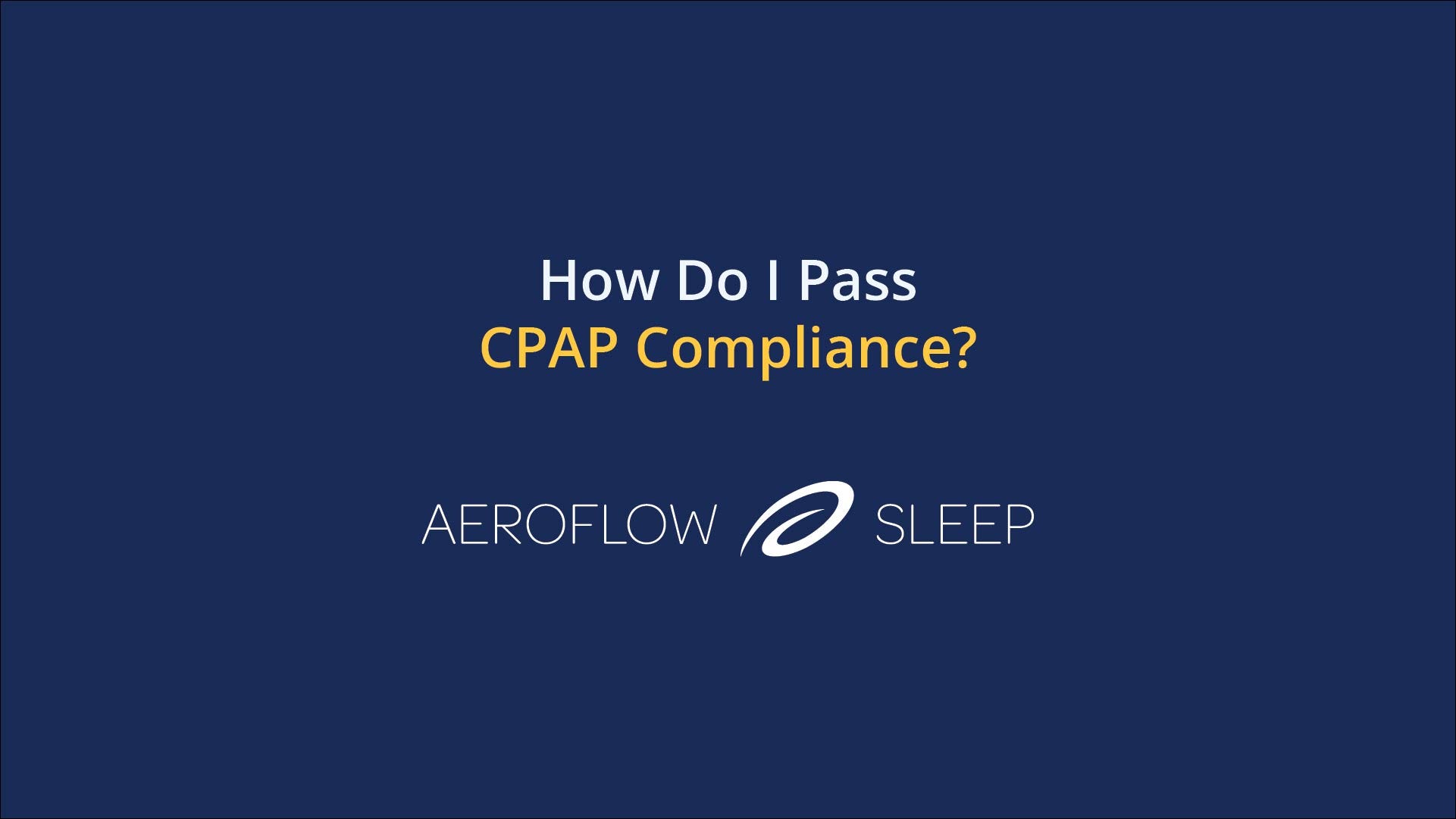
Watch and subscribe to the Aeroflow Sleep YouTube channel for more helpful videos!
Am I Required To Rent My CPAP Supplies Too?
CPAP rental programs only apply to CPAP, APAP, and BiPAP machines. Other CPAP equipment—such as CPAP masks, tubing, filters, and humidifiers—will be paid for up front like any other covered purchase. These items are typically considered medically necessary, so your healthcare insurance will almost always cover them, however your deductible and coinsurance rates will likely apply.
Items that will need to be paid out-of-pocket are also determined by your insurance company, so while they may not require a rental period, they may also not be considered a medical necessity and not be covered. Travel CPAP machines, heated elements, and cleaning supplies are all examples of what insurance will not pay for.
How Do I Know If I'm Required To Rent My CPAP?
Not all insurers require a rental period, and many will cover at least your CPAP machine. So, how do you know what your policy requires? Your medical supply company can see if you’re eligible for CPAP machines, accessories, and more through insurance; with or without a rental term. Aeroflow Sleep can even check your eligibility in 7 minutes or less.
We’ll reach out to your insurer directly, so there are no surprises. If there’s any need for prior authorization, prescription confirmation, or sleep study verification, we handle all of that paperwork for you. Plus, we’ll tell you how often your insurance plan covers replacement parts, so you can get the most out of your coverage. All you have to do to get started is click below...
What Are The Advantages Of Renting A CPAP Machine?
There are 3 advantages to renting a CPAP machine:
- You can try out different CPAP models.
- You’re more likely to stick with your CPAP therapy.
- Renting may save you money long-term.
What Are The Different CPAP Models?
Aside from CPAP, APAP and BiPAP are also available. APAP (or Auto CPAP) is when your pressure is adjusted automatically within a set range. It still blows a continuous stream of air, but a traditional CPAP is set to one, fixed pressure setting. This change in air pressure is great for people who still snore after CPAP or who are active sleepers, because the APAP can detect these potential apneas and quickly ramp up the pressure to prevent them from happening.
Meanwhile, BiPAP (or bilevel CPAP) doesn’t offer a full range but grants the user a low pressure setting and high pressure setting to default to; one for when you inhale and the other for when you exhale. This is more comfortable for anyone new to CPAP, because the pressure rises and falls with your natural breathing pattern. It may also be better for those suffering from certain cardiovascular and/or neurological conditions.
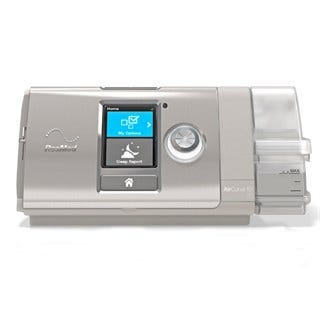

If you’ve already started using one CPAP model, always talk to your DME about what your insurance plan will allow you to try before changing to something else. Many insurance plans will not cover a replacement PAP device within 5 years of the initial order, regardless of whether you’re making the switch from one CPAP model to another or not. Furthermore, your DME may also have return policies in place.
Can A CPAP Rental Help Me With Compliance?
Yes, the CPAP rental period may also help you stick with your sleep apnea treatment, and therefore, help you meet compliance requirements. Research has shown that people who use their CPAP consistently in the beginning are more likely to stick with their therapy in the long-term. For some, the rental requirements could be just the incentive they need to keep going.
What Are The Financial Benefits Of Renting My CPAP?
Finally, for those who cannot afford a large payment up front, CPAP machine rental can be a blessing in disguise, working like a payment plan to distribute the cost over time. And, your insurance plan doesn’t just cover your CPAP machine; it also likely covers a regular schedule of replacement CPAP supplies.
The cost of mask cushions, headgear, water chambers, and new filters can add up over time. If you buy your CPAP out of pocket, you’ll also be responsible for replacing them out of pocket. Your insurance coverage could reduce these costs enough to make dealing with the rental term worthwhile.
How Much Does A CPAP Rental Cost?
Your monthly rental fees are typically the cost of the new CPAP machine divided by the number of months in the rental period. So, for example, if you chose a $500 machine with a 10-month rental, your monthly cost would be $50 (plus any applicable taxes).
During this time, your deductible and coinsurance rates would apply. Your Sleep Specialist from Aeroflow Sleep can contact your insurance company directly, and help you find out where your deductible stands.
Can I Purchase A CPAP On My Own?
You can purchase a CPAP machine on your own if you don’t want to go through a rental program. However, before you pay out of pocket, consider how that purchase fits into the bigger picture… A CPAP rental costs $50/mo (based on our earlier example) but paying through a third party without insurance costs the full $500 up front.
No negotiating. No payment plan. Just a transaction. So, is instant gratification in the short-term really what you want?
Then, remember, rental policies are determined by your insurance company and not your CPAP equipment provider. You won’t get any of the aforementioned advantages, nor the opportunity to utilize Aeroflow Sleep’s additional services. That’s right; we’re not just a DME. We’re your sleep apnea advocate, and by ordering your CPAP supplies through insurance from us, you’ll also get:
- Mask-Fitting Technology
- Dedicated Aeroflow Sleep Specialist
- User-Friendly Account Portal
Whether your insurance provider requires you to rent or you get to own your CPAP device outright from the beginning, there’s never been a better time to seek your eligibility for CPAP through insurance. Call us today at 1-800-480-5491 or email us at papintake@aeroflowinc.com We’re here to help!
References
Lee W, Nagubadi S, Kryger MH, Mokhlesi B. Epidemiology of Obstructive Sleep Apnea: a Population-based Perspective. Expert Rev Respir Med. 2008 Jun 1;2(3):349-364. doi: 10.1586/17476348.2.3.349. PMID: 19690624; PMCID: PMC2727690.
Catcheside PG. Predictors of continuous positive airway pressure adherence. F1000 Med Rep. 2010 Sep 23;2:70. doi: 10.3410/M2-70. PMID: 20948830; PMCID: PMC2954420.



